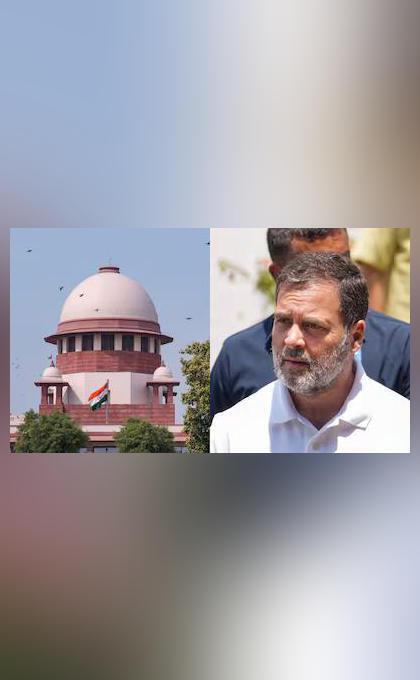
Why Ask on Social Media & Not in Parliament: SC to Rahul on ‘Land Grab’ Claim
In a recent development, the Supreme Court has rebuked Congress leader Rahul Gandhi over his claim that China had grabbed 2,000 square kilometers of Indian land. The court’s stern reaction came while staying a defamation case against Rahul for his remarks about the Indian Army. The next hearing in the case is scheduled to take place after three weeks.
Rahul Gandhi had made the statement in 2020, claiming that China had occupied 2,000 square kilometers of Indian land. However, the court questioned the basis of his claim, asking how he knew that 2,000 square kilometers of land was occupied by China. The court’s skepticism was evident, with the judges wondering why Rahul chose to make such statements on social media instead of raising them in Parliament.
The Supreme Court’s rebuke of Rahul Gandhi is significant, as it highlights the importance of due diligence and verification of facts before making public statements. The court’s question is a pertinent one – if Rahul had concrete evidence to back up his claim, why didn’t he raise it in Parliament, where he could have used his platform to raise awareness and demand action from the government?
Rahul Gandhi’s statement had sparked a national debate, with many questioning the veracity of his claim. The government had also denied the claim, saying that the Line of Actual Control (LAC) with China had not been altered. Despite this, Rahul Gandhi had stuck to his claim, saying that he had received information from “reliable sources” that the Chinese had occupied Indian land.
However, the Supreme Court’s intervention has raised serious questions about Rahul’s motivations and the lack of evidence to back up his claim. The court’s decision to stay the defamation case against Rahul is significant, as it implies that the court does not want to proceed with the case until Rahul provides evidence to support his claim.
The Supreme Court’s rebuke of Rahul Gandhi is also significant in the context of the ongoing political discourse in the country. The court’s decision highlights the importance of fact-checking and verification of facts before making public statements. It also underscores the need for politicians to be responsible and accountable for their actions and statements.
In recent years, social media has become a popular platform for politicians to make statements and share their views. However, this has also led to a proliferation of fake news and misinformation. The Supreme Court’s decision is a reminder that politicians have a responsibility to verify the facts before making public statements, and that they must be accountable for their actions.
The court’s decision is also significant in the context of the ongoing tensions between India and China. The two countries have been locked in a border dispute for several months, with both sides accusing each other of aggression. The Supreme Court’s decision highlights the importance of maintaining a peaceful and diplomatic approach to resolving disputes, and the need for politicians to avoid making inflammatory statements that can escalate tensions.
In conclusion, the Supreme Court’s rebuke of Rahul Gandhi is a significant development in the ongoing political discourse in the country. The court’s decision highlights the importance of fact-checking and verification of facts before making public statements, and underscores the need for politicians to be responsible and accountable for their actions. The court’s decision also underscores the need for politicians to avoid making inflammatory statements that can escalate tensions and create divisions among the people.






